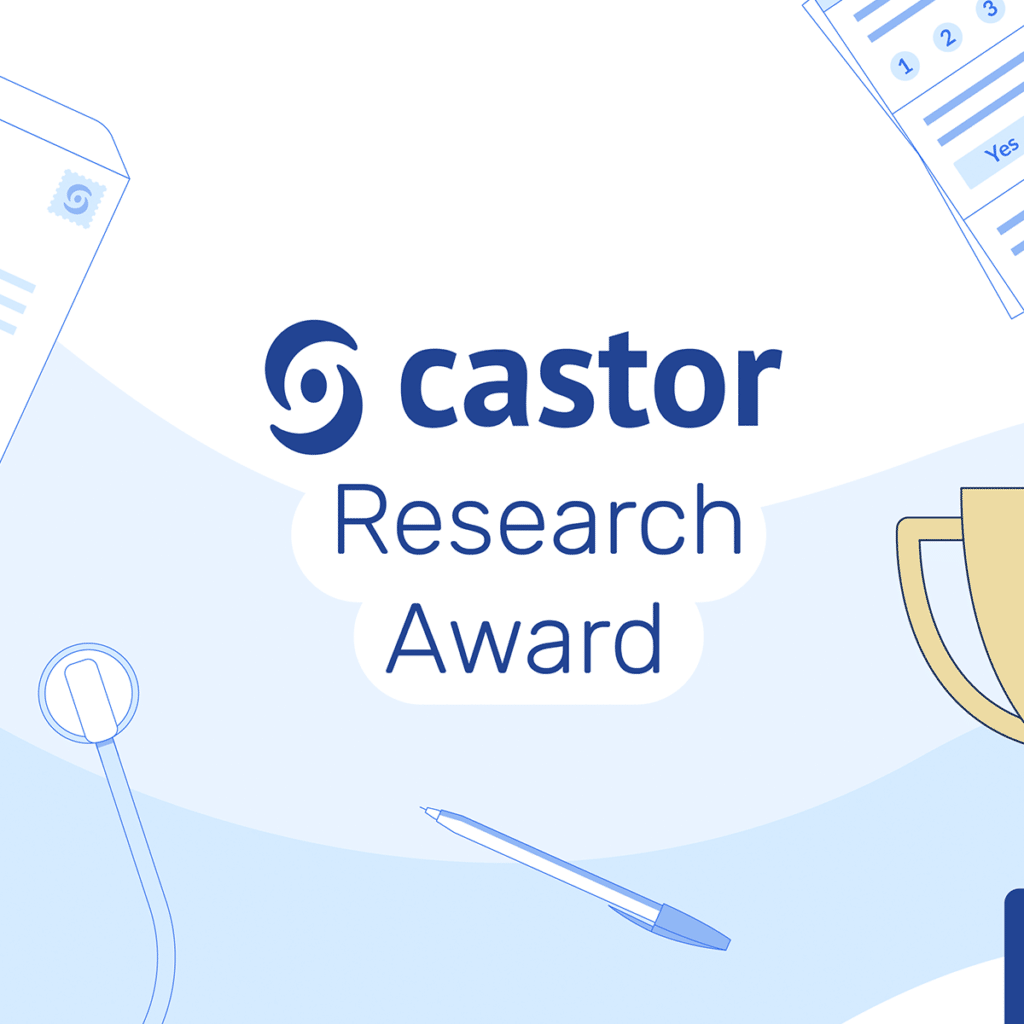Our previous nomination for the Castor Research Award was a project focused on congenital heart disease and mobile health. This time we’re going to a completely different research area, another somewhat popular topic – the effects of cannabis on pain. It’s fascinating to see what a broad range of research is being done in Castor!
We present to you our 8th nomination, a project from the Leids Universitair Medisch Centrum in the Netherlands focusing on the effects of THC on pain relief in fibromyalgia. This was a joy to read and we can’t wait to review the results. We hope that the results will be available for the finale, an event planned for early next year, where each nominee will present their project and the winner of €3000 will be announced.
The effects of inhaled delta‐9‐tetrahydrocannabinol (THC) and cannabidiol (CBD) on pain relief and subjective effects in fibromyalgia patients
‐ A placebo controlled pharmacokinetic‐pharmacodynamic study
Tine van de Donk, MD, PhD student; Monique van Velzen, PhD; Albert Dahan, MD, PhD, Professor of Anesthesiology – Leids Universitair Medisch Centrum

Background
Chronic pain is a major burden to society and in the Netherlands almost 20% of the adult population suffers from moderate to severe chronic pain. While effective treatment of chronic pain remains a major challenge, 1 million Dutch people use an opioid for their pain condition. Opioids are highly potent, but treatment is associated with dangerous complications like respiratory depression that can lead to the death. In the current global opioid epidemic, there is an unmet need for pharmaceutical alternatives to opioid treatment in chronic pain patients.
A possible alternative can be found in the chemicals of the cannabis plant (Cannabis sativa L.), which contains over 500 chemical components with more than 100 of them being cannabinoids. The major cannabinoid is ∆9-tetrahydrocannabinol (THC), a partial CB1 receptor agonist, that produces a variety of effects including altered cognition and motor function, analgesia and psychotropic effects (e.g. drug high). Another key component of cannabis is cannabidiol (CBD), which does not produce psychotropic effects in humans, since CBD does not interact with the CB1 but the CB2 receptor. Instead, studies indicate that CBD has anxiolytic and anti-inflammatory effects and may also exert neuro-protective and anti-convulsive activity.

Study setup / methods
In this experimental randomized placebo-controlled 4-way crossover trial, we determined the analgesic effects of inhaled pharmaceutical-grade cannabis in twenty chronic pain patients with fibromyalgia, using the cannabis plant with all its natural components. We tested four different varieties with exact knowledge on their THC, and CBD content: BedrocanTM (22.4 mg THC, < 1 mg CBD), BediolTM (13.4 mg THC, 17.8 mg CBD), BedroliteTM (18.4 mg CBD, < 1 mg THC) and a placebo variety without THC or CBD.
Patients visited the research unit on four occasions, on each of the visits they received one of four possible cannabis treatments by means of cannabis vapor inhalation. Following inhalation we assessed relief of experimental pressure pain, electrical pain and spontaneous pain (primary endpoints) as well as the subjective and psychotropic effects. Blood samples were collected to determine the CBD, THC and its active metabolite 11-hydroxy-THC(11-OH-THC) plasma concentrations. Adverse events were collected in the database as well.
How we are using Castor for our research
Working with Castor has been a great joy. We nowadays never start a new study using paper CRFs, which is saving up a lot of trees! Apart from this environmental benefit, entering the data directly into the computer saves time and effort. Every paper CRF used to be entered manually into SPSS/Excel, this time consuming and error sensitive task can now be skipped. When you are new to the program, it takes a little time to understand how to build and use an eCRF. If you feel stuck, there is always the Castor support who will respond within minutes.
In our case we requested a new feature for our eCRF, in just a few days this feature was built into the Castor software. When the CRF is completed one sees that Castor is a very clear and user-friendly platform. During the course of our study, within minutes a lot of data was obtained, the clear overview makes sure you don’t miss any fields and typos are flagged immediately. Another nice feature is the possibility to include computations in the eCRF, for example age, BMI and even automatically generating scores of questionnaires. This element makes it possible to immediately see the results.
Stay tuned for more nominations! We wish all nominees good luck and encourage all researchers to brag about their projects and get the chance to win €3000!


